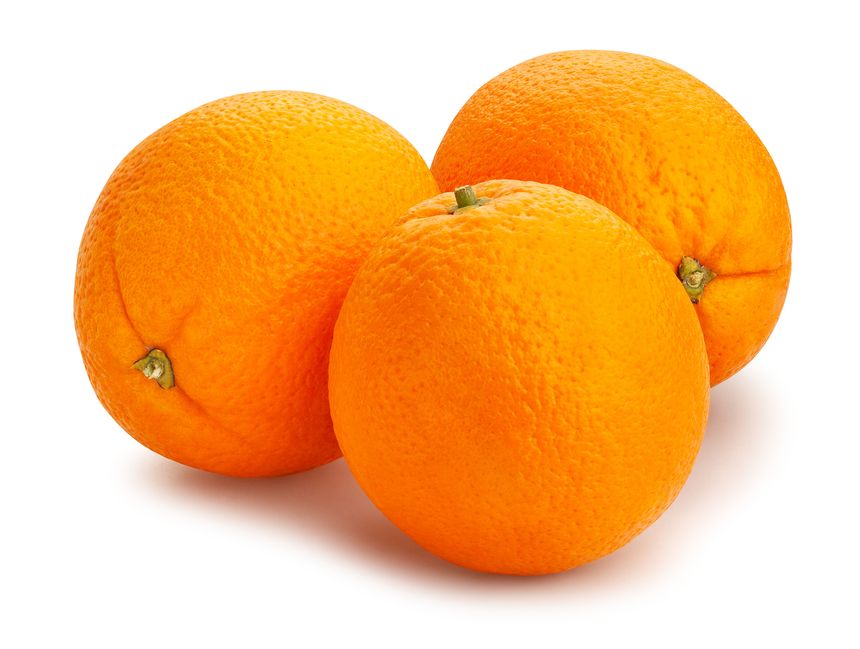Challenges to “Made in USA” claims are a perennial favorite for class action attorneys. After all, it’s often possible to make out a prima facie case simply by finding inconsistencies between product labels and the company’s own marketing materials. Case in point: a September putative class action filed against Florida’s Natural Growers, Inc., d/b/a Florida’s Natural Orange Juice, currently pending in the Western District of New York.
According to the complaint, Florida’s Natural specifically designed its marketing materials to lead people to believe its orange juice is made in the United States from Florida oranges. That's a problem, according to the plaintiff, because the juicy truth is that Florida’s Natural has been blending its product with juice from Brazil and Mexico since May 2022.
The plaintiff points to a few things that, in her view, come together to create a deceptive net impression that the juice is of U.S. origin. First, each carton contains a U.S. flag on the top. This flag is located in close proximity to the statement, “Owned by Florida Farmers.” Next, on the side panel, the cartons contain a narrative explaining the company's unique attributes, pointing to the fact that Florida’s Natural is a “citrus cooperative that’s proudly owned by hundreds of hardworking farmers and their families.” The narrative concludes with the tagline, “Florida’s Natural. Together, from tree to table.” The carton never specifically says the juice is made from Florida oranges. But, the plaintiff argues, with all this U.S. and Florida imagery, especially given the strong association between Florida and oranges, reasonable consumers are very likely to make the assumption.
The plaintiff suggests that the Federal Trade Commission’s (FTC) Made in USA Labeling Rule, 16 C.F.R. Part 323, confirms the illegality of the claim. Arguing that the use of the U.S. flag constitutes an unqualified implied “Made in USA” claim under that Rule, the plaintiff says the product should have been comprised of “all or virtually all ingredients … made and sourced in the United States.” Because it contains some amount of foreign juice, that wasn’t the case.
The plaintiff claims she didn’t get what she bargained for. And, on top of that, she says she and others paid a price premium of approximately 50% based on Florida’s Natural’s allegedly deceptive claims. Accordingly, the plaintiff alleges Florida’s Natural violated New York’s consumer protection laws, GBL Sections 349 and 350, and defrauded consumers.
You may wonder how the plaintiff discovered this alleged deception. In all likelihood, she just went to the Florida’s Natural website. After all, the very first FAQ on the site is, “Why has Florida’s Natural started adding Mexican Valencia orange juice to its Florida not-from-concentrate orange juice?” Regardless of what you think about whether the carton conveys a U.S.-origin claim, the website makes it pretty clear that the juice contains non-U.S. ingredients.
Time will tell whether this action will proceed. There are potential roadblocks ahead for the plaintiffs, including demonstrating that the implied “Made in USA” claim is actually present in the advertising, and navigating the jurisdictional split between the Food and Drug Administration and the FTC when it comes to food labels. Origin nerds among us will also find it interesting that the complaint and Florida's Natural's marketing materials are somewhat ambiguous as to whether Florida's Natural is importing oranges and then juicing them in the United States, or importing finished juice to blend into its product (it matters). Nonetheless, regardless of what happens, marketers should take away a few important lessons:
Resolve discrepancies in your marketing materials. If you say something on your label and then contradict it on your website, you’ve set yourself up for a challenge. Especially for products that are typically purchased in stores, if there’s a conflict, plaintiff’s attorneys can – and likely will – argue that your claims are deceptive because consumers saw only the label, not the explanation on your website, before deciding to purchase your product.
Qualify claims everywhere they appear. Similarly, if your claim needs to be qualified with explanatory information to avoid misleading consumers, ensure those qualifications accompany the claim wherever it appears. And, while you’re at it, make sure the qualifications are placed close to the claim and are easy for consumers to see and understand.
Confirm you can substantiate reasonably implied claims. As a marketer, you are responsible for the express and implied claims your advertisements convey to reasonable consumers. If you don’t have a firm grasp on what implied claims your ad conveys, consider either copy testing it or adding qualifications to avoid misunderstandings.
Class actions are an ongoing risk. The FTC’s Made in USA enforcement program may be mostly on pause during the ongoing federal government shutdown, but that doesn’t mean marketers can be complacent, because class action activity grinds on.
Need help? Give us a call. Navigating the Made in USA compliance landscape can be a challenge. We can guide you.

/Passle/5db069e28cb62309f866c3ee/MediaLibrary/Images/2025-06-30-18-20-05-882-6862d555bf3898129ef17194.jpg)
/Passle/5db069e28cb62309f866c3ee/SearchServiceImages/2025-12-08-16-19-01-292-6936fa755b578955555c41c2.jpg)
/Passle/5db069e28cb62309f866c3ee/SearchServiceImages/2025-12-04-15-32-44-367-6931a99c9421fe7e50e0b072.jpg)
/Passle/5db069e28cb62309f866c3ee/SearchServiceImages/2025-12-03-16-04-59-359-69305fab186e029cfdb2acd9.jpg)
/Passle/5db069e28cb62309f866c3ee/MediaLibrary/Images/5fdc8ae0fac8ca1158b19795/2023-12-18-16-23-35-425-658072079f7a0ecb4134021b.jpg)